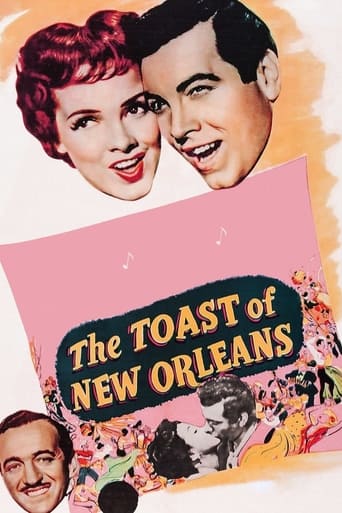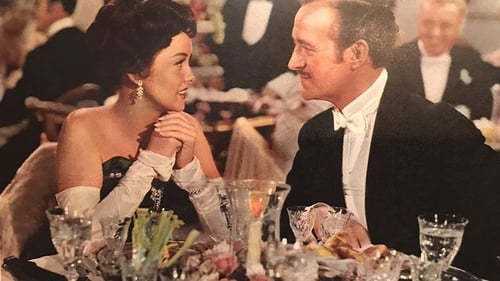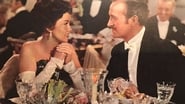mark.waltz
Life in the Bayou for fisherman Mario Lanza comes to an end when an opera star and her agent (Kathryn Grayson and David Niven) visit for the annual blessing of the fishing boats and discover his untrained but classical singing voice. He's unaccustomed to life among polite society so he's a bit crude when introduced. Fame is only a song away with a few bumps along the way. This is basically a re-tread of "That Midnight Kiss" with Lanza in a fishing boat instead of a truck and in period costumes instead of modern dress. Ms. Grayson gives an extremely funny performance, her eyes indicating hysterical disgust as he "intrudes" on her singing of "Be My Love" and later swings her around in a fiery dance. Niven's subtle performance suggests his character is totally amused by Lanza's lack of sophistication and how it puts the woman he loves in some precarious predicaments.This film is highlighted by the "Tina Lina", a production number sung by Lanza and danced by the people of the Bayou, lead by Broadway dancer James Mitchell (later "All My Children's" Palmer Cortlandt) and future Oscar Winner Rita Moreno. She is a soft and lovely character, not the spitfire usually associated with her, although she brought a lot of femininity to "West Side Story's" Anita who was really only a spitfire when she danced. Pedro Armandariz as Lanza's father makes his stereotypical character a bit more likable by giving him a rough around the edge persona that is actually charming once you get used to him.There's also a very funny "curtain call" at the end where Grayson and Lanza engage in a chase around the stage (front and back) which seems a pre-cursor to Grayson's later diva in "Kiss Me Kate". My only issue with the film was its repeat of basically the same story as their previous one together and the quick ending that seemed to wrap up the story too abruptly and unbelievably.
rap-39
A typical Lanza flick that had limited audience appeal with a weak story line that was put together simply to justify Lanza's MGM contract at the time.As reported by member Lastliberal (above) Grayson could not stand Lanza because of his obscene advances towards her off (and sometimes on) camera. In addition, his gutter mannerism and the continual smell of alcohol in her face during scenes they did together were intolerable. After doing their second (and last) film together, "Toast of New Orleans", the normally quiet Grayson stormed into Louie B. Mayer's office and told him in no uncertain words that she would never work with Lanza again – period. Mayer felt that Grayson was much more valuable to MGM then Lanza, so Grayson's statement stuck. Grayson went on to star in a number of widely received (and far more profitable) musicals with Howard Keel and others. Later in life when asked to compare Lanza and Keel her reply was that there was no comparison between them, and that Keel was great to work with and had much more appeal to the "real people" in the audiences.
Michael Bo
A bayou fisherman of deplorable social graces but endowed with a wonderfully resonant, if unschooled voice (Mario Lanza) is discovered by the director of the New Orleans French Opera (David Niven), and falls in love with the prima donna, a refined young soprano (Kathryn Grayson).I never thought I would say this, opera fan that I am, but 'Toast of New Orleans' boasts altogether too much singing to keep the admittedly meager narrative afloat. And the singing is not, honestly, always of the highest possible standard, Lanza as well as Grayson aiming for rather coarse, stylistically 'wrong' effects rather than finesse, and their Italian and French leave much to be desired. Having said that, the climactic love duet from 'Madame Butterfly', which actually has a meaning in the film beyond that of pretty sounds, works brilliantly, and the involved cinematography of that penultimate scene helps the drama along.There isn't so much else in the film. What it wants is to entertain us with gorgeous music and good-looking stars, and it does just that. That may not be enough to engage very many TV viewers in this day and age, but if you like opera and if you are none too puritanical about how it is done, you're probably in for a good time.
maritere1939
I've watched this film more than 50 times, and as much as I watch as much as I like best. Mario Lanza was just unique, I agree that he did not educated his voice enough, but his natural voice was so wonderful, none of the best tenors hadn't his magnificent voice, is enough to know that Mo. Toscanini said that was "The Voice of the Century". This film is fresh and light and romantic, Mario's performance of "Be my love" as a duet is nice too, and "Madame Butterfly duet" is the greatest I've ever heard. David Niven, J. Carroll Naish and Rita Moreno, each one in the role they played are just wonderful too. Mario Lanza should be in the opera stage but if so, common people didn't had the opportunity to be delight with opera.





